2015 Wake up Call for America
Updated: 2015-04-27 06:02
By Don Bonker(China Daily USA)
|
|||||||||
Year 2015 should be a wake-up call for America, but we continue to be delusional about how China's growing influence is re-shaping the world order.
Both countries are typically assertive on the world stage but each is guided by a different script. For the United States, it is all about geopolitical, military, security, engaged in costly and futile conflicts around the world while ignoring needs domestically. China is wisely avoiding conflicts and instead is totally focused on economics – promoting investments, trade, economic development, thus enhancing its standing worldwide while improving conditions at home.
There is no lack of illustrations on how this is playing out. Last Spring in Europe, both US and China's presidents were advancing their respective agendas. There was President Obama making the rounds urging more punishing sanctions on Russia for its mischief in Ukraine and beyond. Indeed , employing sanctions is part of America's geopolitical tool kit, as we've seen played out multiple times, even extending them extraterritorially (Iran), whatever the cost to the US economy.
At the same time, China's President Xi's visit was not about sanctions or political trailblazing, but signing investment and trade deals in Europe, accompanied by more than 200 Chinese business leaders, several of whom signed multi-billion agreements to buy airplanes and cars as the contingent swept through France and Germany enroute to Brussels to close the deal on a wide ranging trade pact with the EU.
Little surprise that China has now become the world's top trading nation, a position long held by the United States, with its total trade for 2013 at $4.2 trillion, slightly above US imports and export levels, a trend that will predictably work in China's favor with little prospect the US will re-take the lead.
This may be yet another indication that America is losing its grip as the dominant world leader, a position it has savored throughout the 20th Century, due in part to its strong and inspirational presidents, notably Franklin Roosevelt, John F. Kennedy and Ronald Reagan. By contrast, China had little presence as a world leader given the setbacks caused by the Japanese occupation and the Cultural Revolution years.
Entering the 21st Century, how global leadership is being shaped by these two countries is vastly different given their contrasting political systems -- a somewhat dysfunctional democracy versus highly efficient authoritarianism.
For America, the turning point was President George W. Bush's attack on Iraq that not only put the U. S. in the center of the Islamic conflicts and chaos throughout the Middle East, but tarnished America's indisputable standing as a world leader. It will not end, as evidence by the Republican's leading candidate to be the next president, Jeb Bush, who recently declared that as president he will order the US military to root out all the "barbarians" and "evildoers" around the globe. He is less hawkish than the other Republicans running for president.
America's presumed role as global policeman is not the only problem. President Barack Obama's efforts to assert leadership internationally is being undermined within his own country.
The Obama Administration led the effort in negotiations that would preclude Iran from developing nuclear weapons and ending international sanctions. Before the agreement was finalized, a newly elected US Senator obtained 47 signatures on a letter that clearly undercut America's leadership role among the G7 counties heavily committed to this historic action. Did these Senators have concerns about the terms of the agreement, not known at the time, or was it more about Israel President Netanyahu's defiant trip to Washington and the AIPAC's generous contributions to the Senators campaigns.
President Obama's other initiative, the Trans-Pacific Partnership (TPP) involving twelve countries, is also being undermined, this time by his own Party. Organized labor support is the lifeblood of many Democrats who must seek election every two years. The union leaders' message to any Democratic Congressman who votes for either the Trade Promotion Authority (TPA) or the trade agreement itself, is made crystal clear: "we will cut the spigot off on future donations to your campaign."
However these interest groups are asserting their political will. They are also weakening their own president's leadership and America's standing in today's world. So many special interest groups now own parts of the US Congress that the American public has little say on the outcome of these issues.
By contrast, China's President Xu's rising stature and influence is being felt in capitols all around the world. His proposed Asian Infrastructure Investment Bank (AIIB) has gained rapid traction, signing up 57 countries as founding members despite America's plea to its allies not join the Chinese initiative. This is obviously a rival to the American-backed World Bank, but yet another illustration of China taking the lead and America struggling to maintain its super-power status.
While China has emerged as a formidable competitor worldwide, President Xi must cope with his own domestic and political problems within the Communist Party and State Owned Enterprises, as well as mounting pressures to deal with corruption, rule of law and press freedoms.
Former US Secretary of the Treasury Henry Paulson's newly published book, Dealing with China: an insider Unmasks the New Economic Superpower, offers a timely and insightful view of China's emerging global status and the threats and opportunities that it poses for the United States.
As both Treasury Secretary and head of Goldman Sacks (1999-2006), Mr. Paulson has come to appreciate the political and economic realities facing both countries going forward, particularly America, noting "the only threat to the U. S. predominance is our own political system."
He recognizes that ultimately it's all about competition -- the only question is whether it will lead to engaging in conflict or promoting cooperation.
The author is former congressman. He is executive director of APCO Worldwide.
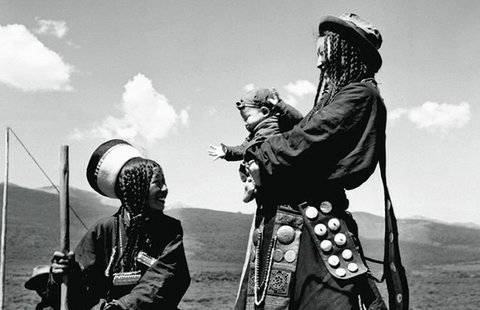
 Historical photos of 56 nations in China (Part I)
Historical photos of 56 nations in China (Part I)
 World No.1 Ma wins first men's singles world championship
World No.1 Ma wins first men's singles world championship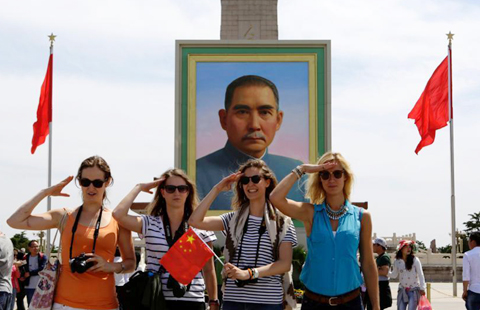
 Ten photos you don't wanna miss during May Day holiday
Ten photos you don't wanna miss during May Day holiday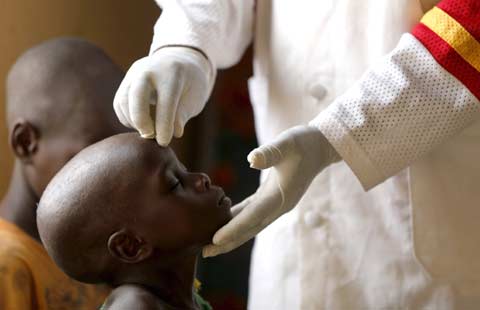
 The world in photos: April 27 - May 3
The world in photos: April 27 - May 3
 Fans dressed up to celebrate 'Star Wars Day' in Budapest
Fans dressed up to celebrate 'Star Wars Day' in Budapest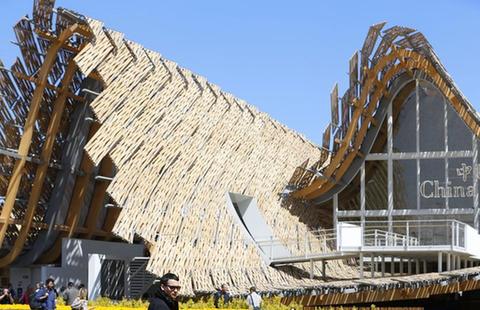
 China pavilion opens at Expo Milano 2015
China pavilion opens at Expo Milano 2015 New exhibition by Fondazione Prada offers new perspective on originality and imitation
New exhibition by Fondazione Prada offers new perspective on originality and imitation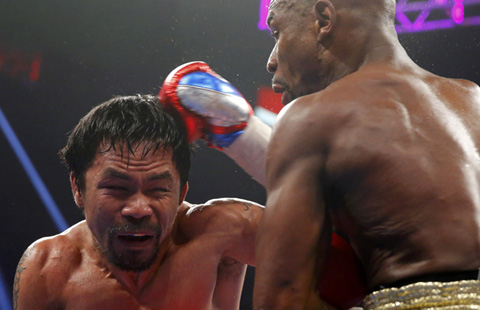
 Mayweather beats Pacquiao by unanimous decision
Mayweather beats Pacquiao by unanimous decision
Most Viewed
Editor's Picks

|

|

|

|

|

|
Today's Top News
China protests US blacklisting in religious freedom
China becomes top source of immigrants to United States
Los Angeles protesters confront Abe face to face
Language contest wows judges
Arrest warrants issued in birthing center cases
Baltimore mayor lifts curfew 6 days after riots
More speculation in China's market as it's new
Consul general praises Beijing university to alumni
US Weekly

|

|







